
Friedrich-Schiller-Denkmal: A Tribute to the Poet in Brandenburg
A serene memorial in Brandenburg an der Havel dedicated to Friedrich Schiller, inviting reflection on his profound impact on German literature and thought.
The Friedrich-Schiller-Denkmal in Brandenburg an der Havel is a memorial dedicated to the renowned German poet, philosopher, and playwright Friedrich Schiller. Located on Havelstraße, this monument offers a serene spot for reflection and appreciation of Schiller's contributions to literature and thought. While details about its specific history are scarce, the monument serves as a cultural landmark within the city. Visitors can enjoy a peaceful moment amidst the urban landscape, connecting with the legacy of one of Germany's most important literary figures. The surrounding area provides a pleasant backdrop for a contemplative visit, making it a worthwhile stop for those interested in German literature and history. The monument is accessible year-round, offering a continuous opportunity to engage with Schiller's enduring influence.
A brief summary to Friedrich-Schiller-Denkmal
- Havelstraße, Brandenburg, 14776, DE
Local tips
- Combine your visit with a walk along the Havel River for scenic views.
- Visit the nearby Dominsel (Cathedral Island) to explore Brandenburg's historical architecture.
- Check local event listings, as the area around the monument sometimes hosts cultural activities.
Getting There
-
Walking
From Brandenburg's Neustädtischer Markt, walk east along Hauptstraße, then turn right onto Steinstraße. Continue onto Mühlendamm and cross the bridge over the Havel River. Turn left onto Havelstraße; the Friedrich-Schiller-Denkmal will be on your right. The walk is approximately 10-15 minutes. Alternatively, from the Brandenburg an der Havel train station, take Tram line 6 towards Anton-Saefkow-Allee and get off at the Nicolaiplatz stop. From there, walk along Steinstraße, then onto Mühlendamm and cross the bridge over the Havel River. Turn left onto Havelstraße; the Friedrich-Schiller-Denkmal will be on your right. A single tram ticket costs €2.50.
-
Public Transport
From Brandenburg an der Havel Hauptbahnhof (main train station), take Tram line 6 towards Anton-Saefkow-Allee and get off at the Nicolaiplatz stop. From there, walk along Steinstraße, then onto Mühlendamm and cross the bridge over the Havel River. Turn left onto Havelstraße; the Friedrich-Schiller-Denkmal will be on your right. A single tram ticket costs €2.50.
-
Taxi/Ride-Share
A taxi or ride-share from Brandenburg an der Havel Hauptbahnhof (main train station) to Friedrich-Schiller-Denkmal will take approximately 5-10 minutes, depending on traffic. Expect to pay around €8-€12. Parking is available in the vicinity, but availability may be limited depending on the time of day.
Discover more about Friedrich-Schiller-Denkmal
Iconic landmarks you can’t miss
Friedrich-Schiller-Denkmal
0.0 km
A serene memorial in Brandenburg an der Havel dedicated to Friedrich Schiller, inviting reflection on his profound impact on German literature and thought.
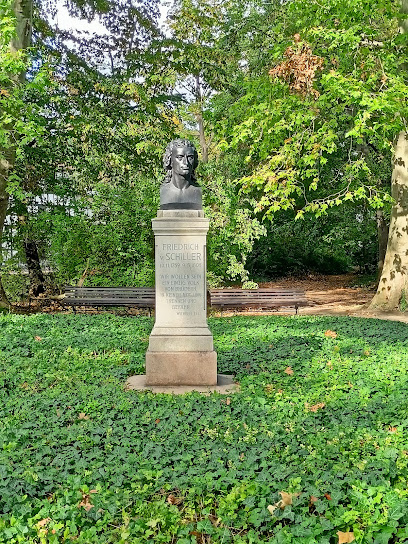
Brandenburger Stadtbefestigung
0.1 km
Discover Brandenburg an der Havel's medieval city walls: a journey through history, revealing the strategic importance and enduring legacy of this historic German town.
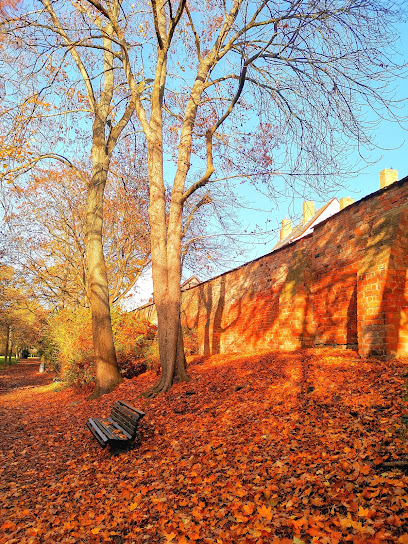
Alexander von Humboldt-Denkmal
0.3 km
Discover the Alexander von Humboldt Memorial in Brandenburg an der Havel's Humboldthain park, a serene tribute to the renowned scientist and explorer, surrounded by diverse flora and tranquil scenery.
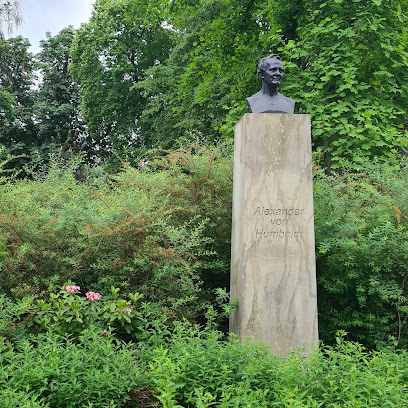
Saint Catherine Church
0.3 km
Discover St. Catherine's Church in Brandenburg an der Havel: a stunning example of North German Brick Gothic architecture with a rich history and exquisite medieval art.
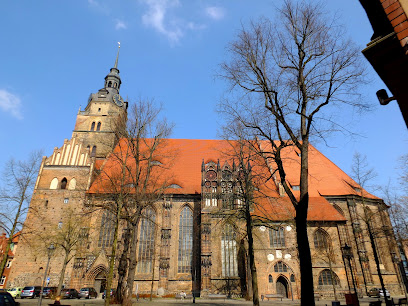
St. Johannis
0.3 km
Explore St. Johannis Church in Brandenburg: a historic Franciscan monastery turned unique event venue, blending medieval architecture with modern cultural experiences.
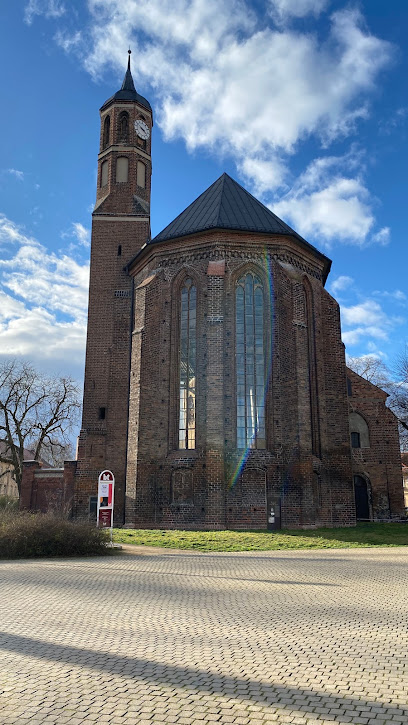
Gotisches Haus
0.4 km
Explore medieval architecture and alchemic secrets at the Gotisches Haus in Brandenburg an der Havel, a remarkably preserved 15th-century landmark in the heart of the Old Town.
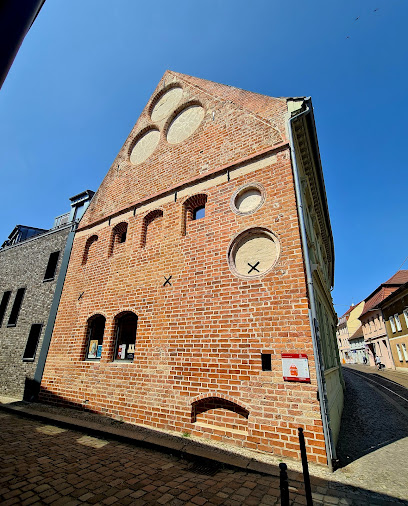
Plauer Torturm
0.5 km
Explore the Plauer Torturm in Brandenburg an der Havel, a medieval gate tower showcasing the city's rich history and architectural evolution, near the serene Humboldthain Park.
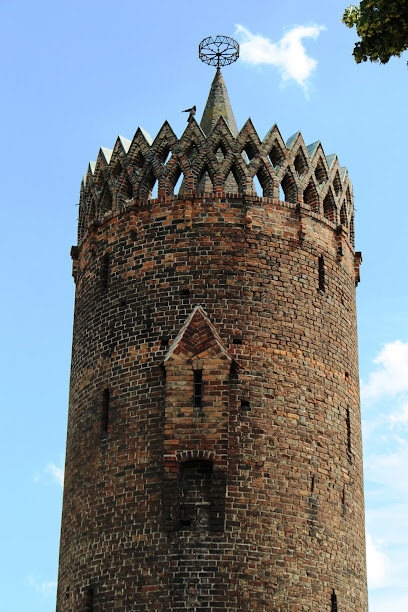
August Wredow Statue
0.6 km
Discover the artistry of August Wredow on Marienberg in Brandenburg an der Havel, offering panoramic city views and a glimpse into the region's rich cultural heritage.
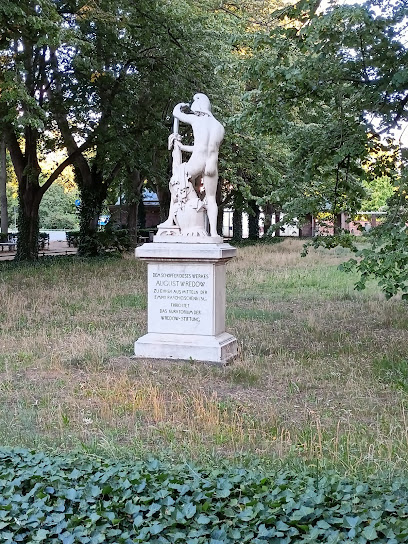
Neustädtischer Mühlentorturm
0.6 km
Discover the Neustädtischer Mühlentorturm in Brandenburg an der Havel, a remarkable medieval gate tower showcasing Pomeranian Late Gothic architecture and centuries of captivating history.
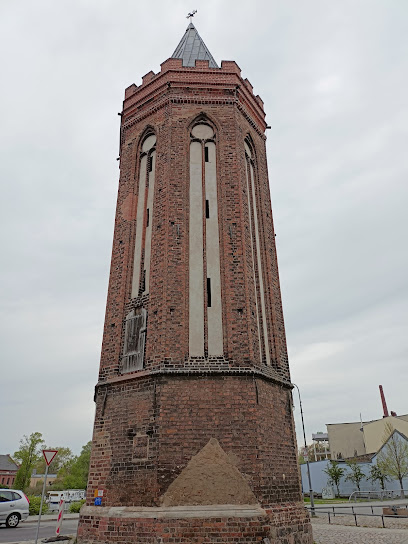
St. Gotthardt
0.8 km
Discover St. Gotthardt Church in Brandenburg an der Havel: a captivating blend of Romanesque and Gothic architecture, rich history, and artistic treasures, offering panoramic city views.
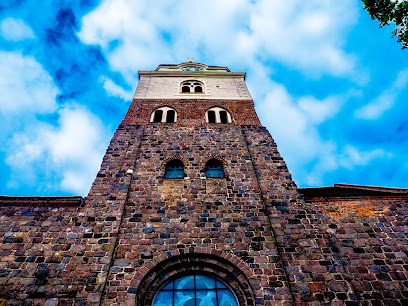
Rathenower Torturm
0.8 km
Explore Brandenburg's oldest town gate, the Rathenower Torturm, a medieval landmark with a rich history, sturdy architecture, and a glimpse into the city's past.
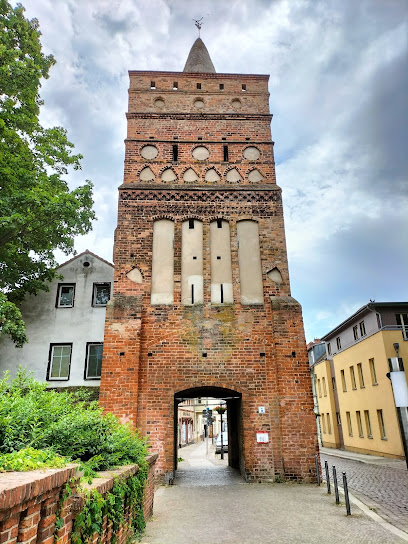
Leuchtturm Breitlingsee
5.1 km
Discover the serene beauty of Leuchtturm Breitlingsee, a charming lakeside landmark near Brandenburg an der Havel, offering tranquility and scenic views for a perfect escape.
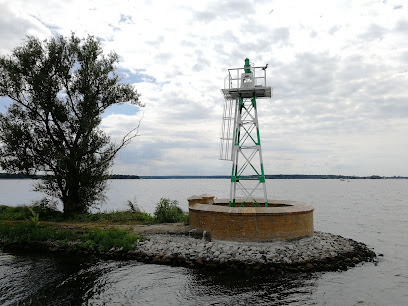
Ministerweg von Rochow bepflanzt mit der Göttiner Bürgerinitiative Naturnahe Ortsteile
6.5 km
Explore Ministerweg in Brandenburg, a serene tourist attraction promoting biodiversity and community spirit through beautiful native plant displays.

Alte Eiche
7.8 km
Discover the timeless beauty and rich history of Brandenburg at the Alte Eiche, an ancient oak offering a tranquil escape and a tangible connection to the region's past.

Schloss Lindstedt
30.8 km
Experience the rich history and stunning architecture of Schloss Lindstedt, a must-see historical site and museum in Potsdam, Germany.
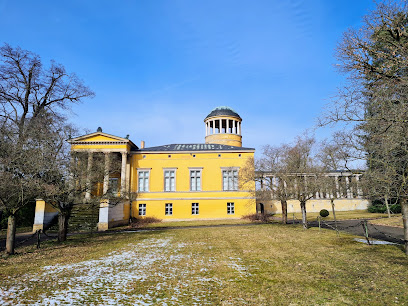
Unmissable attractions to see
Am Salzhofufer
0.3 km
Experience the serene beauty of Am Salzhofufer, a picturesque waterfront destination in Brandenburg an der Havel, perfect for relaxation and exploration.
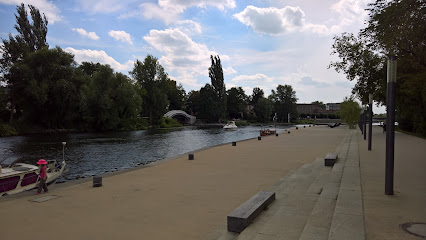
Fritze Bollmann Brunnen
0.3 km
Explore the historical charm of Fritze Bollmann Brunnen, a captivating fountain in Brandenburg an der Havel that reflects the city’s rich cultural heritage.
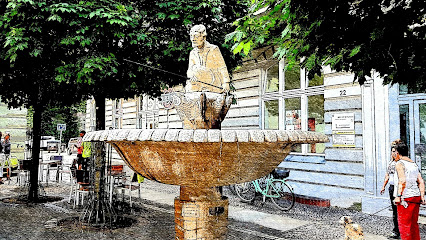
Waldmops (Paar) im Humboldthain
0.3 km
Explore the serene beauty of Waldmops (Paar) in Humboldthain, a charming nature retreat in Brandenburg perfect for family outings and nature lovers.
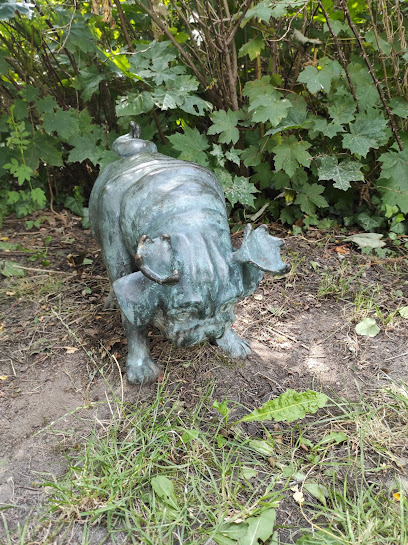
Waldmops (Denkmal) - Erinnerung an Loriot
0.3 km
Explore the Waldmops in Brandenburg an der Havel, a charming monument celebrating the humor of Loriot amidst picturesque surroundings.

Loriotdenkmal
0.4 km
Explore the Loriotdenkmal in Brandenburg, a charming tribute to the beloved German humorist Loriot, where culture and nature beautifully intertwine.
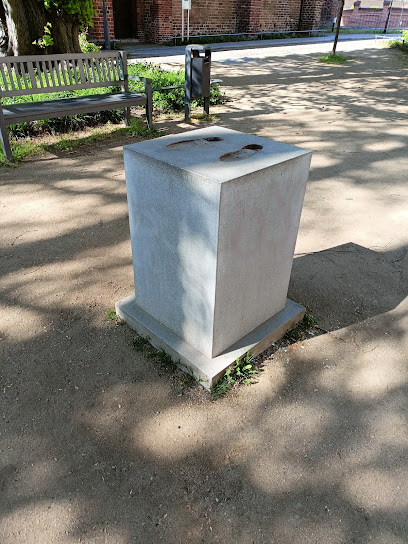
Steintorturm
0.4 km
Experience the historic Steintorturm, a towering symbol of Brandenburg's medieval heritage, where history and beauty intertwine.
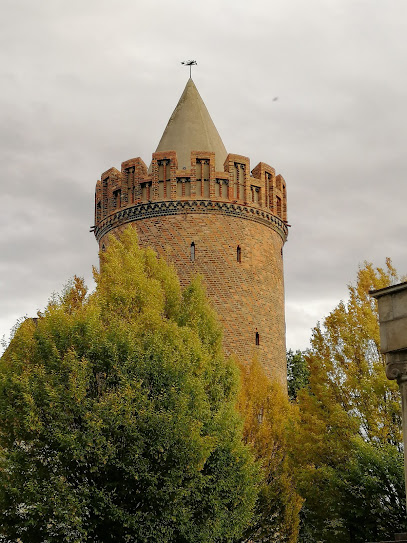
Slawendorf Brandenburg an der Havel
0.4 km
Discover the rich heritage of the Slavic tribes at Slawendorf Brandenburg an der Havel, where history comes alive through immersive experiences.
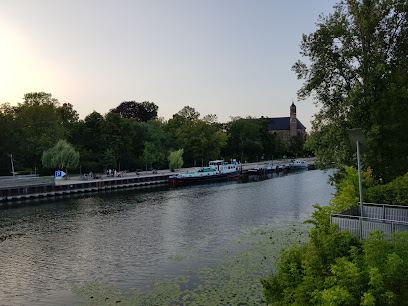
Brandenburg State Archaeology Museum
0.5 km
Explore Brandenburg's rich history at the Brandenburg State Archaeology Museum, showcasing captivating artifacts from prehistoric to medieval times.
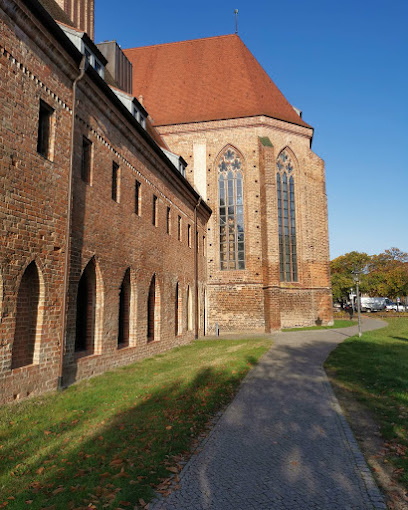
Waldmops (Denkmal)
0.5 km
Discover the enchanting Waldmops monument in Brandenburg, a captivating testament to local culture and history amidst beautiful surroundings.
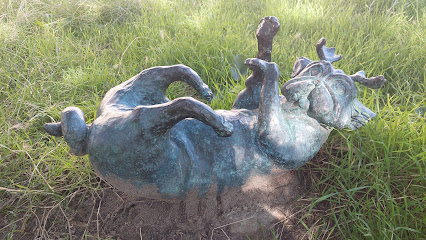
Waldmops (Denkmal) - Homage an Loriot
0.5 km
Explore the whimsical Waldmops Denkmal in Brandenburg an der Havel, a unique tribute to the beloved German comedian Loriot, perfect for humor and art lovers.
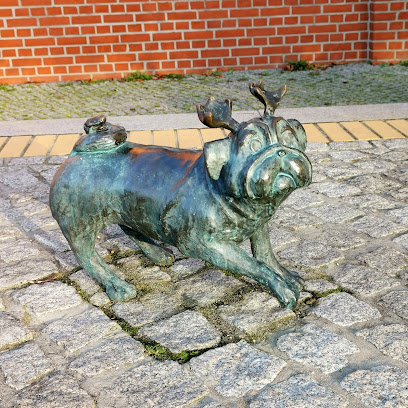
Havelpegel
0.7 km
Discover the tranquil beauty of Havelpegel in Brandenburg, a perfect escape for nature lovers and peace seekers amidst stunning riverside views.
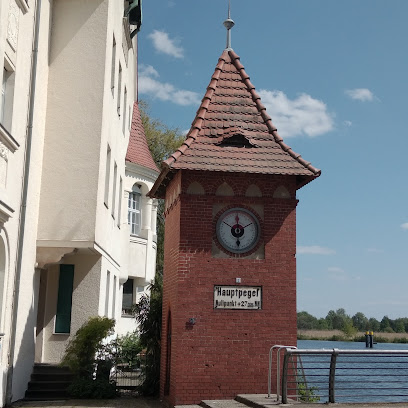
Waldmops
0.8 km
Discover the serene beauty and cultural richness of Waldmops, a hidden gem in Brandenburg an der Havel, perfect for nature lovers and families alike.

Waldmops am Brunnen/Dom
0.8 km
Explore the serene beauty and rich history of Waldmops am Brunnen, a charming tourist attraction in Brandenburg an der Havel.
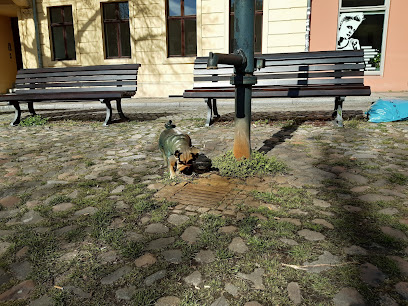
Friedenswarte auf dem Marienberg
0.9 km
Discover the breathtaking views and historical significance of Friedenswarte, a peaceful monument atop Marienberg in Brandenburg an der Havel.
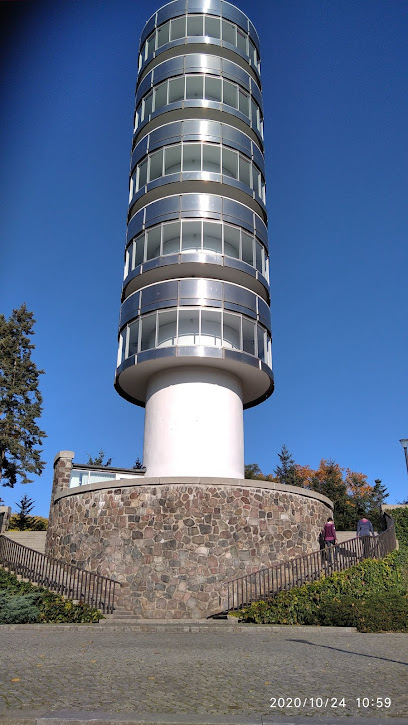
Brennabor Kunsthalle
0.9 km
Explore the vibrant world of modern art at Brennabor Kunsthalle, an inspiring museum in Brandenburg that captivates every visitor.

Essential places to dine
Restaurant Theaterklause
0.1 km
Discover the best of German cuisine paired with live entertainment at Restaurant Theaterklause in Brandenburg an der Havel.
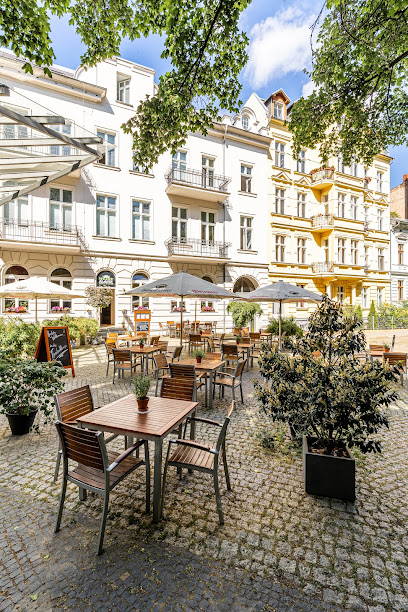
Schweineschnäuzchen
0.2 km
Experience authentic German cuisine at Schweineschnäuzchen in Brandenburg - where every dish tells a story.
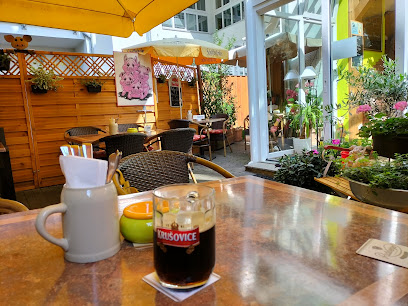
Kartoffelkäfer
0.3 km
Discover authentic German cuisine at Kartoffelkäfer in Brandenburg - where tradition meets flavor in every bite.
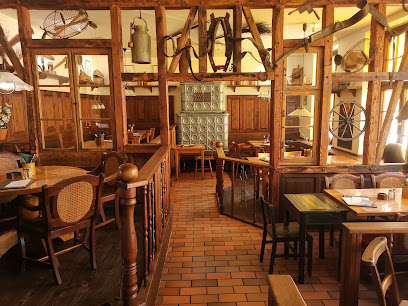
Herzschlag Brandenburg
0.4 km
Experience the flavors of Germany at Herzschlag Brandenburg – where tradition meets innovation in every dish.
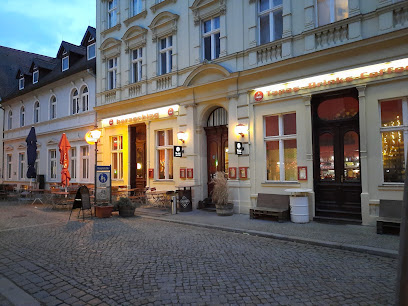
Am Humboldthain
0.5 km
Experience authentic German cuisine at Am Humboldthain in Brandenburg – where creativity meets quality in every dish.
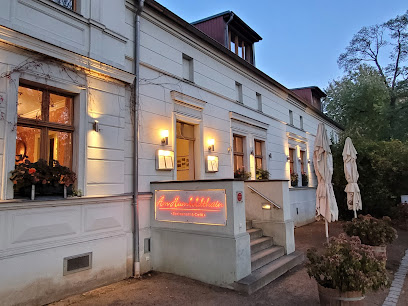
Gaststätte "Zum Bootshaus"
0.6 km
Experience authentic regional cuisine at Gaststätte 'Zum Bootshaus' in Brandenburg an der Havel - where every meal tells a story.
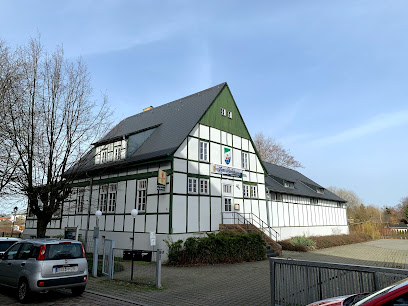
Restaurant Inspektorenhaus
0.6 km
Discover exquisite dining at Restaurant Inspektorenhaus, where local flavors meet modern culinary excellence in Brandenburg an der Havel.
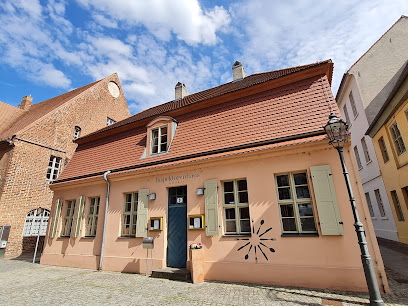
Steakhaus El Gaucho
0.6 km
Indulge in authentic Argentinian cuisine at Steakhaus El Gaucho, where succulent steaks meet vibrant flavors in Brandenburg.
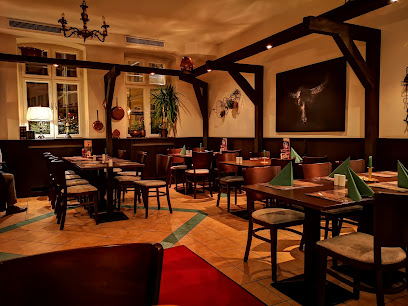
Ratskeller
0.6 km
Experience authentic German cuisine at Ratskeller in Brandenburg – where tradition meets taste in a cozy atmosphere.

Restaurant an der Dominsel
0.6 km
Experience exquisite regional cuisine with stunning views at Restaurant an der Dominsel in Brandenburg an der Havel.

Restaurant Parduin
0.7 km
Discover culinary excellence at Restaurant Parduin, where traditional German flavors meet modern European cuisine in Brandenburg an der Havel.
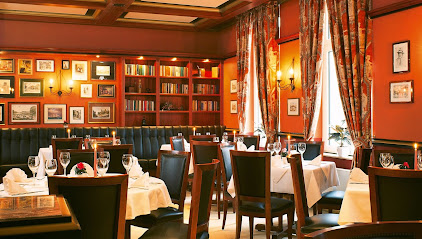
Gaststätte Zur Insel
0.7 km
Discover authentic German cuisine at Gaststätte Zur Insel in Brandenburg an der Havel - where tradition meets taste.
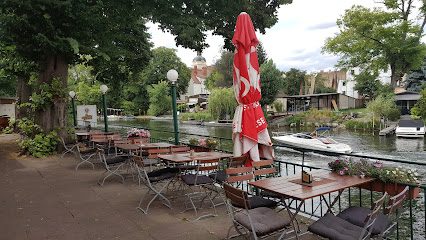
Malabar Restaurant
0.8 km
Experience authentic Indian cuisine at Malabar Restaurant in Brandenburg an der Havel - where every meal is a celebration of flavor.
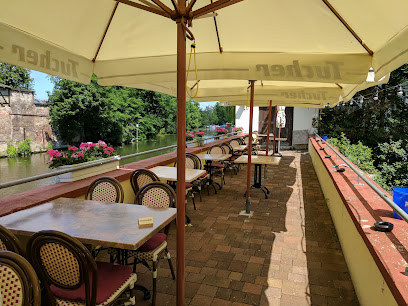
Restaurant Remise
0.9 km
Experience authentic German cuisine in the heart of Brandenburg's historic Dominsel at Restaurant Remise.
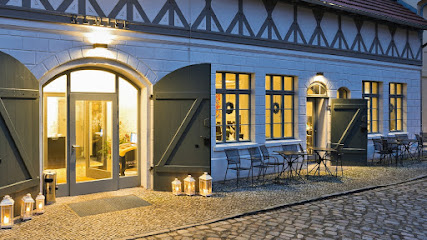
Restaurant Casa Bianca
1.0 km
Discover the exquisite flavors of Italy at Restaurant Casa Bianca in Brandenburg – where every meal tells a story.

Markets, malls and hidden boutiques
Wedekind Mode
0.2 km
Discover unique women's fashion at Wedekind Mode, a chic boutique in Brandenburg an der Havel offering personalized styling and contemporary styles.

Dürerhaus Hans-Peter Zahn
0.2 km
Explore the charm of Dürerhaus Hans-Peter Zahn, a gift shop in Brandenburg offering unique handcrafted items and local art treasures.
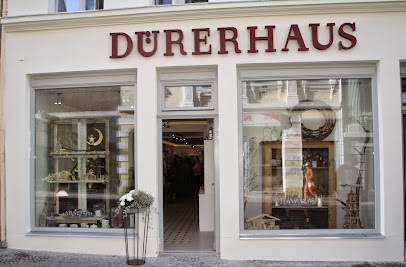
Artimesia
0.2 km
Discover Artimesia, a charming gift shop in Brandenburg, offering unique souvenirs and artisanal crafts that capture the essence of your travels.

Weltladen Brandenburg an der Havel
0.3 km
Explore the essence of ethical shopping at Weltladen Brandenburg an der Havel, where every purchase makes a difference.
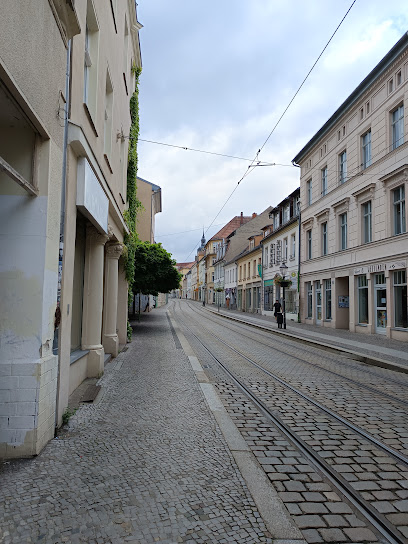
Depot
0.3 km
Discover unique gifts and stylish home decor at Depot, your go-to shop in Brandenburg an der Havel for memorable souvenirs and furnishings.

MÄC-GEIZ
0.3 km
Explore MÄC-GEIZ in Brandenburg for unique gifts, home essentials, and unbeatable prices in a vibrant shopping atmosphere.
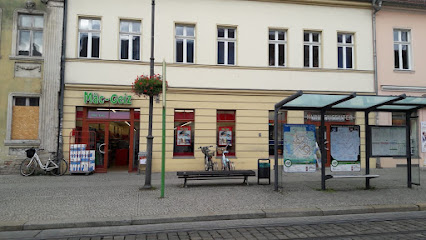
Stehachterl
0.5 km
Discover Stehachterl, a charming wine store and café in Brandenburg, offering exquisite wines, gourmet groceries, and a cozy atmosphere to unwind.
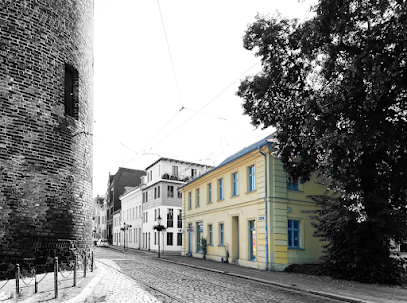
pachamama Laden – plastikfrei & unverpackt – Trageberatung, Stoffwindeln, Kurse
0.5 km
Discover sustainable living at Pachamama Laden, Brandenburg's premier plastic-free store offering eco-friendly products and engaging workshops.

Sankt-Annen-Galerie
0.5 km
Discover the vibrant Sankt-Annen-Galerie in Brandenburg, a shopping haven with diverse stores, delightful dining, and exciting events for all ages.

Christ
0.5 km
Discover exquisite jewelry and unique gifts at Christ, a premier destination in Brandenburg for lasting memories and timeless elegance.

JEANS FRITZ
0.5 km
Explore the trendiest denim and stylish apparel at JEANS FRITZ, Brandenburg's go-to clothing store for fashion-forward shoppers.

nähkaufhaus.de Online Shop
0.6 km
Explore Nähkaufhaus.de, a crafting paradise in Brandenburg, offering a wide range of notions and materials for all your creative projects.

Nobunto Deutschland UG (haftungsbeschränkt)
0.6 km
Discover unique gifts and local crafts at Nobunto, a charming gift shop in Brandenburg, perfect for souvenirs and special occasions.
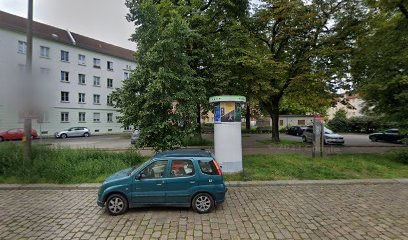
NANU-NANA
0.6 km
Discover unique gifts and charming souvenirs at NANU-NANA in Brandenburg, a must-visit spot for travelers seeking memorable treasures.

Wedekind Angel, Sport-, Spiel- u. Schreibwaren & freie Waffen
0.6 km
Explore the diverse offerings of Wedekind Angel, your go-to destination for games, sports, and unique office supplies in Brandenburg an der Havel.

Essential bars & hidden hideouts
Agentenzentrale
0.2 km
Experience the lively atmosphere of Agentenzentrale, a cozy pub in Brandenburg, offering local brews and delicious fare in a welcoming setting.
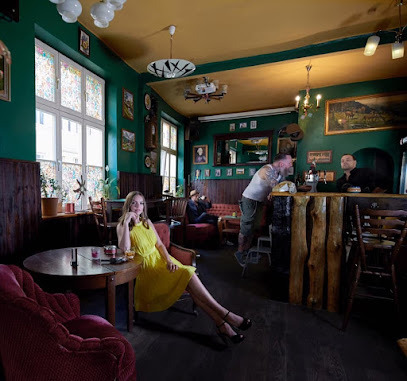
Spätschicht
0.2 km
Discover Spätschicht, the vibrant pub in Brandenburg an der Havel, where locals gather for drinks, laughter, and unforgettable late-night fun.
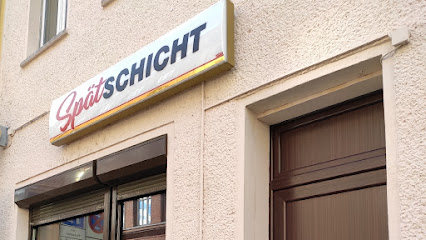
Radon Andreas
0.2 km
Experience the flavors of Brandenburg at Radon Andreas, a charming gastropub offering local cuisine and a welcoming atmosphere.

Ambrosius Pinte
0.2 km
Experience the charm of Ambrosius Pinte, a cozy bar in Brandenburg offering delightful local brews and a warm atmosphere for all visitors.

Jazzfreunde Brandenburg eV
0.2 km
Discover the vibrant jazz scene at Jazzfreunde Brandenburg eV, where local talent and lively performances create unforgettable musical experiences.

Rosinenbomber
0.3 km
Discover the Rosinenbomber: A Historic Bar in Brandenburg Serving Craft Beers and Unique Cocktails in a Cozy Atmosphere.

Cocktailbar Siesta
0.3 km
Experience the artistry of cocktail making at Cocktailbar Siesta, a cozy bar in Brandenburg offering a diverse selection of expertly crafted drinks.

Fontane Lounge mit Kajakverleih
0.4 km
Experience the charm of Fontane Lounge, where delectable cuisine and kayaking adventures unite in the heart of Brandenburg.
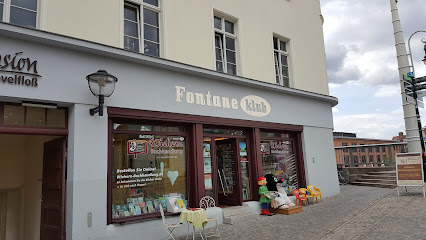
Bar 71 Cocktailbar und Shishalounge
0.4 km
Experience the vibrant nightlife at Bar 71, where expertly crafted cocktails and shisha create the perfect atmosphere for unforgettable evenings.

Altstadt Pub
0.5 km
Discover the local charm and lively atmosphere of Altstadt Pub in Brandenburg an der Havel - the perfect place to unwind with friends over drinks.
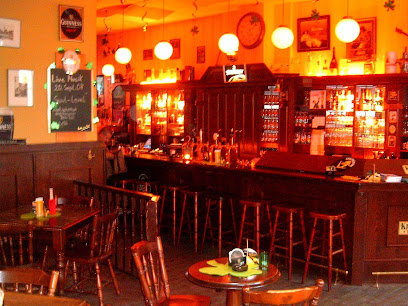
Dream Café Lounge
0.6 km
Discover the charm of Dream Café Lounge in Brandenburg an der Havel, where relaxation meets delightful flavors in a cozy setting.
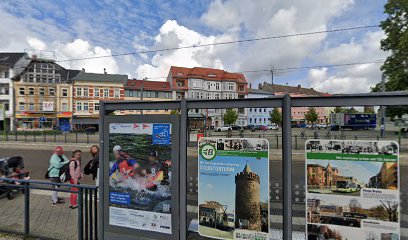
Restaurant Weidelounge / Teeladen Brandenburg
0.6 km
Discover the vibrant flavors of Brandenburg at Weidelounge, where a cozy bar, restaurant, and tea store await your visit.
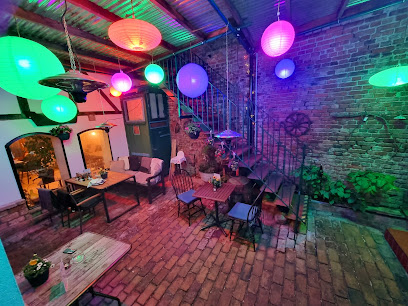
Radfahrer Halt
0.7 km
Discover Radfahrer Halt, a charming bar in Brandenburg an der Havel, offering a delightful selection of beer, cocktails, and a warm atmosphere for all visitors.

Jacobs Corner
0.7 km
Experience the vibrant nightlife of Brandenburg at Jacobs Corner, a cozy bar known for its excellent drinks and lively atmosphere.
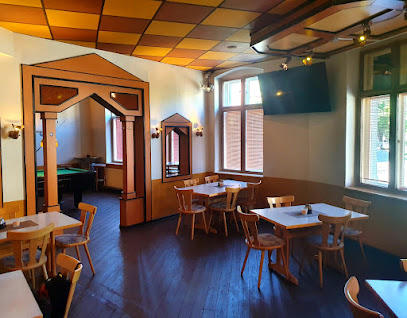
Turbine Brandenburg
0.7 km
Experience the lively atmosphere and diverse menu at Turbine Brandenburg, the ultimate bar and event venue in Brandenburg an der Havel.

Nightclubs & after hour spots
Club Charlotte
33.9 km
Discover the Thrilling Nightlife Experience at Club Charlotte, Potsdam's Premier Nightclub and Concert Venue, Where Music and Dance Come Alive.

Club Bergwerk
33.9 km
Discover the electrifying nightlife at Club Bergwerk in Potsdam, where dancing, cocktails, and unforgettable moments await.

Club Laguna
34.0 km
Experience the electrifying nightlife at Club Laguna, Potsdam's premier night club with pulsating music and an energetic atmosphere.

Club Latino Potsdam
34.1 km
Dive into the pulsating nightlife of Potsdam at Club Latino, where music and dance create an unforgettable experience.

Gutenberg100 - Livemusik und Karaokebar - Potsdam
34.2 km
Discover Potsdam's nightlife at Gutenberg100, where live music, karaoke, and cocktails come together for an unforgettable evening.

Spartacus
35.4 km
Dive into the energetic nightlife of Spartacus, a top night club in Potsdam offering music, drinks, and a vibrant atmosphere for all.

Parkdeck by Clärchen's
37.6 km
Dive into Potsdam's nightlife at Parkdeck by Clärchen's, where vibrant music and an energetic crowd await for an unforgettable night out.

K9-Zeuch Eventlocation
40.9 km
Discover Rhinow's vibrant nightlife at K9-Zeuch Eventlocation, the ultimate destination for dancing and unforgettable nights out.

Miami Live Stendal
50.0 km
Dive into the vibrant nightlife at Miami Live Stendal, where music, dancing, and unforgettable moments await you in the heart of Germany.
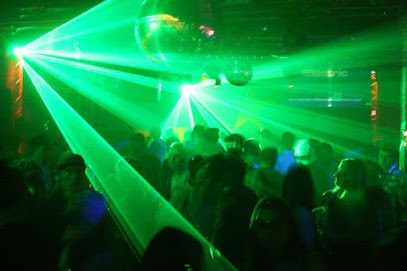
Nightclub Berlin K133
50.9 km
Experience the electrifying nightlife of Berlin at K133, a premier nightclub with an energetic atmosphere and diverse music.

Tabu Bar Tabledance Club - Berlin
52.2 km
Discover the electrifying nightlife of Berlin at Tabu Bar Tabledance Club, where unforgettable performances and vibrant music await your presence.

Paradise Club Berlin
52.2 km
Immerse yourself in the electrifying ambiance of Paradise Club Berlin, where unforgettable nights and vibrant music await.

New West Club - Berlin
52.5 km
Discover Berlin's nightlife at New West Club, a stylish disco club offering electrifying music, vibrant atmosphere, and unforgettable dance experiences.
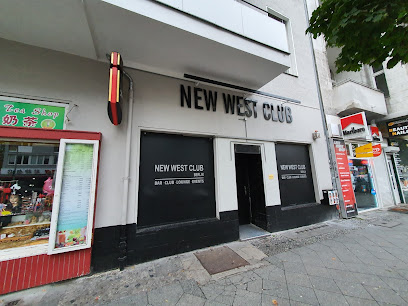
Rush Club
52.5 km
Rush Club in Berlin offers an unparalleled nightlife experience with electrifying music, vibrant dance floors, and an unforgettable atmosphere.

Club Lady Nina
52.7 km
Immerse yourself in Berlin's nightlife at Club Lady Nina, where music, dance, and unforgettable experiences await amidst a vibrant atmosphere.




